Lloyds' boom-era bosses sue bank for bonuses
Eric Daniels and Truett Tate claim they should have received a full payout in 2012
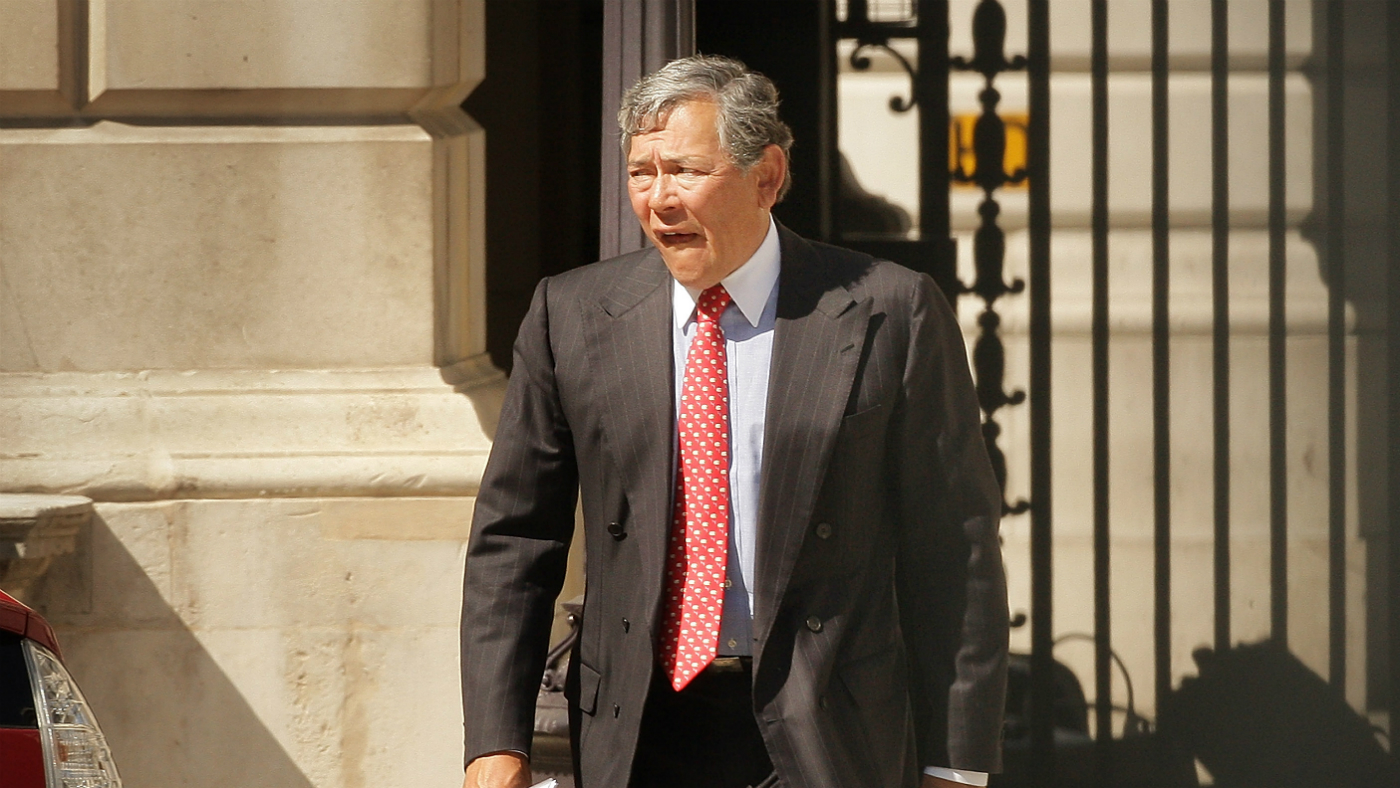
A free daily email with the biggest news stories of the day – and the best features from TheWeek.com
You are now subscribed
Your newsletter sign-up was successful
Will Lloyds retail share offer still go ahead?
25 August
A discounted retail share offer for Lloyds Banking Group could be brought forward – or even scrapped entirely – after George Osborne said he wanted the Government to have completed its exit from the bank by the end of the year.
The comments came after it was announced the investment banks handling the sale of the public stake offloaded another one per cent of the shares, reducing the Government's holding to below 13 per cent. The Times says that, despite a wider market decline that left Lloyds marginally below the 2008 buy-in price of 73.6p per share by the close on Monday, the £550m sale had "notched up a small profit" for the Treasury.
The Week
Escape your echo chamber. Get the facts behind the news, plus analysis from multiple perspectives.

Sign up for The Week's Free Newsletters
From our morning news briefing to a weekly Good News Newsletter, get the best of The Week delivered directly to your inbox.
From our morning news briefing to a weekly Good News Newsletter, get the best of The Week delivered directly to your inbox.
The Daily Telegraph notes the sale was "suspended" several times through the day as shares dipped below the break-even price below which the Treasury has committed not to divest. Analyst Ian Gordon from Investec told the paper this in effect acts as "something of a floor in the price".
In the wake of the sale, Osborne was quoted by the Financial Times at a conference in Helsinki commending the speedy exit of the bank and expressing "hope that the process will be complete within the year".
In July, however, the chancellor confirmed at the Budget he would honour an election pledge to offer retail investors discounted shares in the bank within 12 months, with most analysts expecting the sale to take place in early 2016. This most likely means the retail sale will take place earlier than thought, but could also suggest it will be scrapped in the face of repeated attacks from commentators who argue it does not represent value for taxpayers.
The Evening Standard's James Moore yesterday described the impending offer as a "farce" and a "publicity stunt", which he said could undermine the good work done to return Lloyds to the private sector at a profit.
A free daily email with the biggest news stories of the day – and the best features from TheWeek.com
Lloyds discounted retail share sale questioned again
3 August
A discounted sale of taxpayer-owned shares in Lloyds Banking Group to retail investors is being questioned again after another successful disposal dropped the public stake to below 14 per cent.
Bloomberg reports that the profitable disposal of a further one per cent to institutional investors has reduced the Government's stake to 13.99 per cent, down from 24.99 per cent in December when the latest sell-off began. Investment bank Morgan Stanley is selling off around one per cent of the holding every ten days, which would see all taxpayer shares sold by the end of the year.
But a retail offer promised for early next year would scupper that plan. Instead, around five per cent of shares are expected to be held back for sale to the public at a five per cent discount to market price, in a 'tell Sid'-style final phase to the re-privatisation.
This has already provoked questions over whether reducing proceeds from the sale, currently £14bn and projected to exceed by a couple of billion pounds the £20.5bn originally invested, is the most prudent move for the Treasury. Now Reuters reports high-profile fund managers are joining in the criticism.
Richard Buxton, the star fund manager who is head of UK equities at Old Mutual Global Investors, said: "It would be an awful lot simpler and less costly to sell the remainder of the shares in the market than execute a retail sale at some fixed discount." Eric Moore, an income fund manager at Miton, said the question was if the retail offer represented 'best execution' for the Government. "It probably isn't," he added.
Others say the retail offer is important because of the looming disposal of another taxpayer-owned bank, Royal Bank of Scotland, which is to be sold at a loss in a drawn-out disposal that The Times says could begin with a £2.5bn sale to institutional investors as early as today.
Reuters quotes a source close to the Treasury as saying it "won't be able to get the RBS disposal programme done without retail", adding that "it would be nice to have a successful transaction concluded where retail participated and felt good about it".
Lloyds lines up payouts to sweeten retail share offer
31 July
Lloyds Banking Group is to continue with its reinstated dividend and could offer additional payouts to shareholders ahead of a planned offer for retail investors next year.
The bank, now less than 15 per cent owned by the taxpayer, reports in half-year results that statutory pre-tax profits increased over the first six months of this year by 38 per cent compared to the same period in 2014 to £1.2bn.
This, the Financial Times notes, was less than the £1.8bn expected by analysts, in part because of a substantial new provision of £1.8bn for past mis-selling of products such as payment protection insurance. Operating profit was up 15 per cent to £4.4bn.
The BBC says the new £1.4bn PPI provision takes the bank's overall allocation to £13bn, more than any of its rivals.
Lloyds called the additional bill "disappointing" and revealed it had increased to 1.4 million the number of complaints it had initially rejected but was now reviewing afresh. Last month it was fined £117m by the conduct regulator over its PPI complaints handling.
The FT says the bank will pay out £535m to shareholders, effectively continuing a 75 pence-per-share dividend it reintroduced at the end of December 2014.
It adds the bank will also pay a full-year dividend for 2015 and will consider using excess capital above a core reserves level of 13 per cent for special dividends. So-called 'tier one' reserves have now risen to 13.3 per cent this year.
António Horta-Osório, Lloyds chief executive, said paying a dividend was "clearly more attractive" for a government retail share offering, which is expected in March.
The retail offer will be at a five per cent discount to the prevailing share price and is controversial because it will eat into the profits being made through ongoing divestment of the Government's stake.
The taxpayer's stake in Lloyds had peaked at 43.4 per cent but is now below 15 per cent, with a further one per cent stake being sold off roughly every ten days.
Having dropped 1.5 per cent in Friday trading, shares are currently priced at 84.6p, still well above the 73.6p break-even price for the Treasury.
Lloyds share sale gets in way of taxpayer return
27 July
A promised sale of shares in Lloyds Banking Group to retail investors in a 'Tell Sid'-style final phase to its privatisation could force the government to abandon the profitable 'drip-feed' disposal which has so far returned £13bn to taxpayers.
Sources close to the share sale have told The Telegraph that the ongoing divestment of the government's holding, which is being managed by American investment bank Morgan Stanley, is rattling along at such a pace that at the current rate all the shares will be sold by the end of the year. The taxpayer's stake in Lloyds had peaked at 43.4 per cent but is now below 15 per cent, with a further 1 per cent stake being sold off every ten days.
This may force the Chancellor to intervene to honour an election pledge to offer retail investors a discounted buy-in. The retail offer is expected to take place in February or March 2016 and would see a portion of shares sold at a five per cent discount to their market value.
Any decision to cease a sale that has been extremely successful in turning a profit for the taxpayer would be controversial. Earlier this month, the Financial Times estimated the "drip feed" disposal has brought in £13bn, with the remaining shares valued at around £9bn. This would imply a profit in the billions of pounds on the original £20.3bn investment as part of its 2008 bailout.
Telegraph columnist James Quinn has said that the government could avoid a retail offer of Lloyds shares and keep its "powder dry" for the exit of Royal Bank of Scotland, where a profitable alternative is unlikely given the share price remains well below the 2008 level. The Guardian has previously described a retail sale of Lloyds shares as the "ugliest" of "pre-election bribes".
With or without a discounted offer, the Motley Fool UK argues now is a good time for retail investors to buy shares at Lloyds, which is set to report profits of as much as £7.8bn this year. At its current share price of 85 pence this would equate to an "attractive" price-to-earnings ratio of 10.6, well below the long-term FTSE 100 average of 15.
Lloyds to be sold at a discount as profits recover
17 June
Private investors could be forgiven for thinking they are back in the 1980s.
After the heavily oversubscribed Royal Mail share offer, David Cameron is preparing to sell off billions of pounds worth of shares in Lloyds Banking to retail investors, evoking memories of the British Gas and BT privatisations under Margaret Thatcher. Number 10 is also preparing to sell down positions in Royal Bank of Scotland.
As part of the government's plan to return Lloyds to private ownership within 12 months, it has been drip-feeding shares in the high street retail and business lender to institutions, but it now intends to offer shares at a discount to private investors.
by Mark Dunne, Shares magazine
Details on pricing have yet to be confirmed, but any member of the general public buying shares would get exposure to a growing UK bank. Valued at £61.6 billion, Lloyds is the second largest bank trading on the London Stock Exchange after HSBC.
The future looks bright. Pre-tax profit is expected to jump by 194.1 per cent to £5 billion this year, up from £1.7 billion in 2014, and then rising again to £7.3 billion in 2016, according to forecasts from Investec bank.
Lloyds paid a 0.75p a share dividend in 2014, its first shareholder return since 2008. This year 2.5p a share is expected by Investec, which implies a 2.8 per cent dividend yield based on the latest share price.
Lloyds' strategy includes developing its digital offering and reducing costs. The bank expects to increase lending to individuals and businesses by more than £30 billion in the next three years.
The taxpayer owns a £13.6 billion stake in Lloyds, equivalent to 19 per cent of the business. The Government put £20.5 billion of taxpayers' cash into the lender in 2008, bailing out the group following the financial crisis. The Government originally had a 41 per cent stake in the bank and has since raised more than £10 billion from selling its shares.
One issue for investors to be note is the seemingly never-ending saga of mis-selling compensation payments. Lloyds has set aside more than £12 billion to cover its payment protection insurance (PPI) mis-selling fines. This is almost half of the £26 billion allocated by the industry and the claims are continuing to roll in – all of which will be funded from the bank's profits.

Lloyds shares tumbled this morning after the regulator proposed a cut-off on payment protection insurance claims that exposes the bank to up to £1bn of additional compensation costs.
The Financial Conduct Authority's (FCA) consultation sets out rules for a deadline on complaints to be imposed in June 2019. It would come into force from next year, from which time banks themselves would be required to fund a two-year marketing campaign to make consumers aware their time to complain is running out.
The FCA first suggested, following intense bank lobbying, in November that it could bring to an end a scandal The Times says [1] has brought overall costs of £40bn on the banking sector.
But the watchdog had indicated the cut off would come in 2018, the date banks have used to estimate remaining redress. Lloyds made no further provision for PPI in its latest results and is thought to be fully covered only up to mid-2018.
"It is possible that an extra year's worth of provisioning may now be required," Shore Capital analyst Gary Greenwood told Reuters [2].
"We would not be surprised to see top-ups of a few hundred million pounds and perhaps as high as one billion pounds for each of the large UK banks, with Lloyds being the worst affected."
Lloyds Group brands sold more PPI policies than any other bank and it has so far paid out the largest chunk - £14bn - of the total of £24bn in direct compensation paid to affected customers.
The FTSE 100 was led lower this morning by Royal Bank of Scotland and Barclays, whose shares were being sold off because of a poor showing in the latest regulatory financial strength stress tests. They were down 3.1 and 2.1 per cent.
Lloyds, which is one of the most secure banks in relation to its capital reserves, was not far behind with a drop of two per cent to 52p by 11.30am. The wider top-100 index was down around 0.4 per cent.
-
 Political cartoons for February 21
Political cartoons for February 21Cartoons Saturday’s political cartoons include consequences, secrets, and more
-
 Crisis in Cuba: a ‘golden opportunity’ for Washington?
Crisis in Cuba: a ‘golden opportunity’ for Washington?Talking Point The Trump administration is applying the pressure, and with Latin America swinging to the right, Havana is becoming more ‘politically isolated’
-
 5 thoroughly redacted cartoons about Pam Bondi protecting predators
5 thoroughly redacted cartoons about Pam Bondi protecting predatorsCartoons Artists take on the real victim, types of protection, and more
-
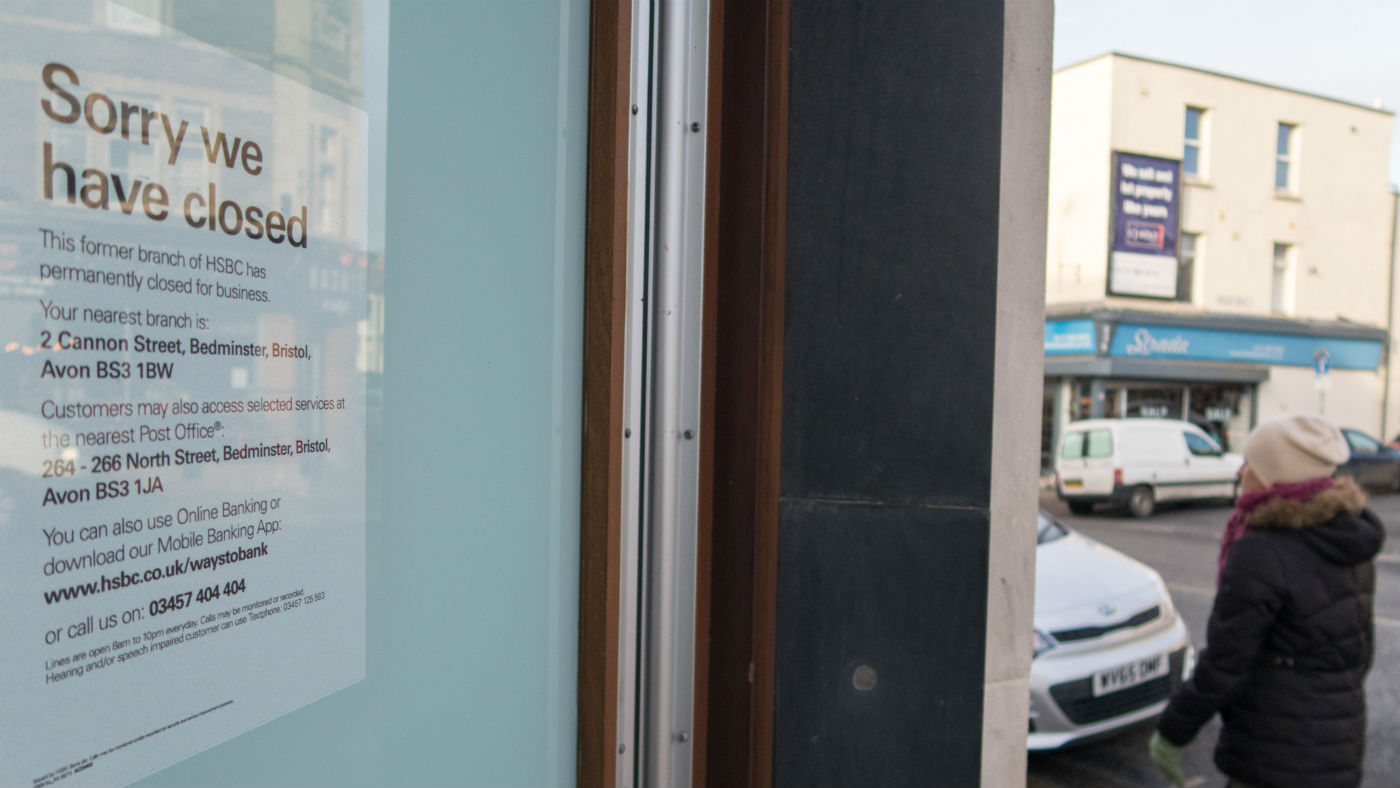 Could ‘banking hubs’ solve problem of branch closures?
Could ‘banking hubs’ solve problem of branch closures?Speed Read MPs fear large sections of society could face ‘financial exclusion’
-
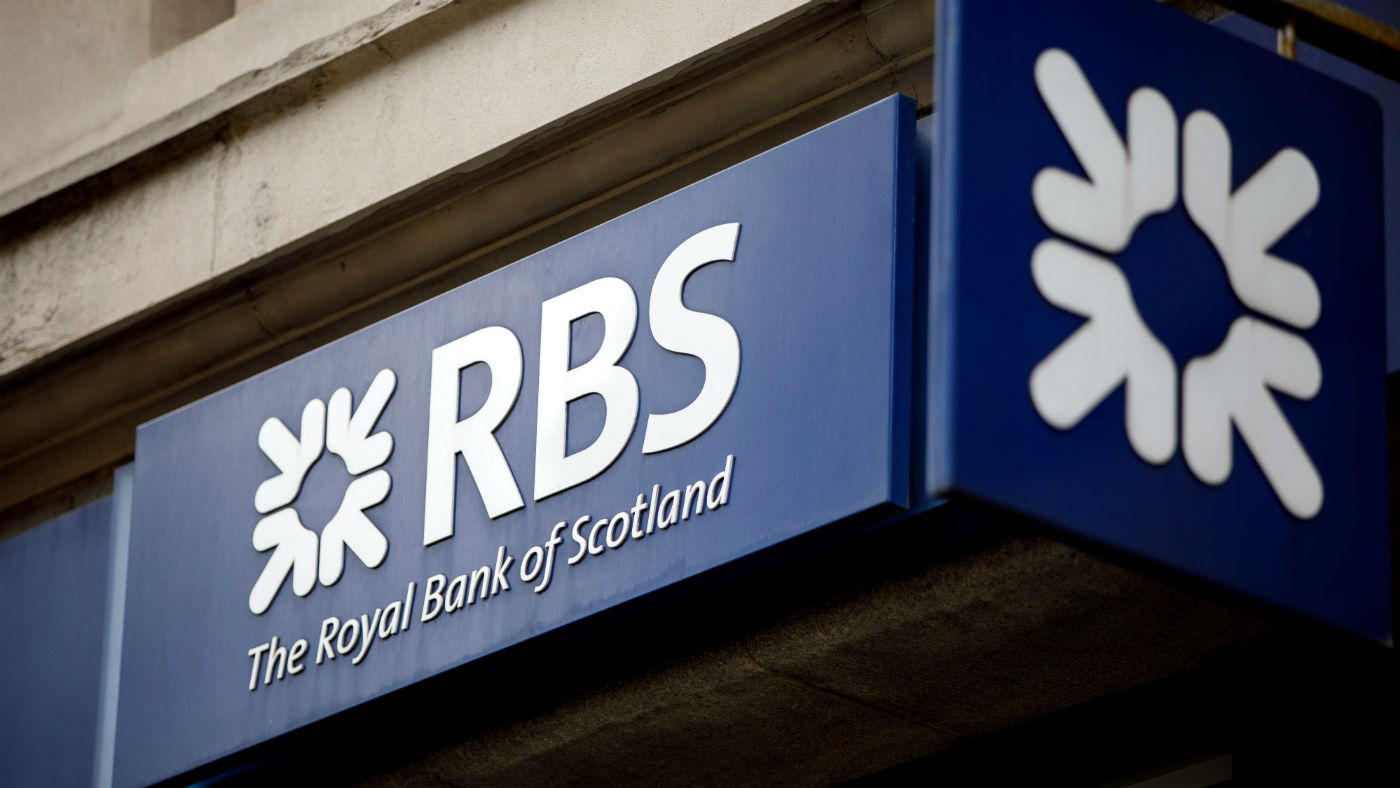 RBS to cut 162 branches and 792 jobs
RBS to cut 162 branches and 792 jobsSpeed Read Move comes days after taxpayer-owned bank announced 206% rise in profits
-
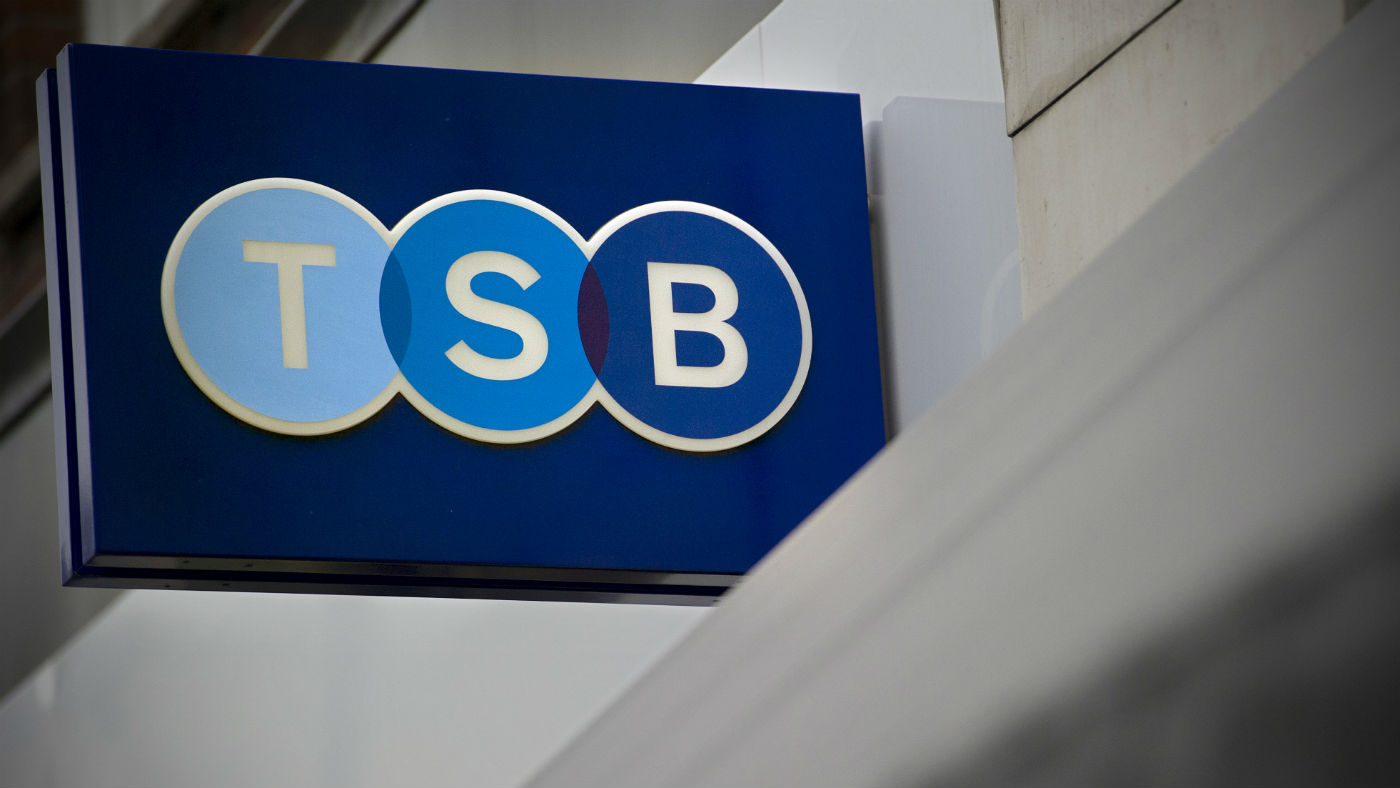 TSB crisis enters fourth day
TSB crisis enters fourth daySpeed Read Bank boss ‘sorry’ for IT chaos that has left customers unable to access accounts or make payments
-
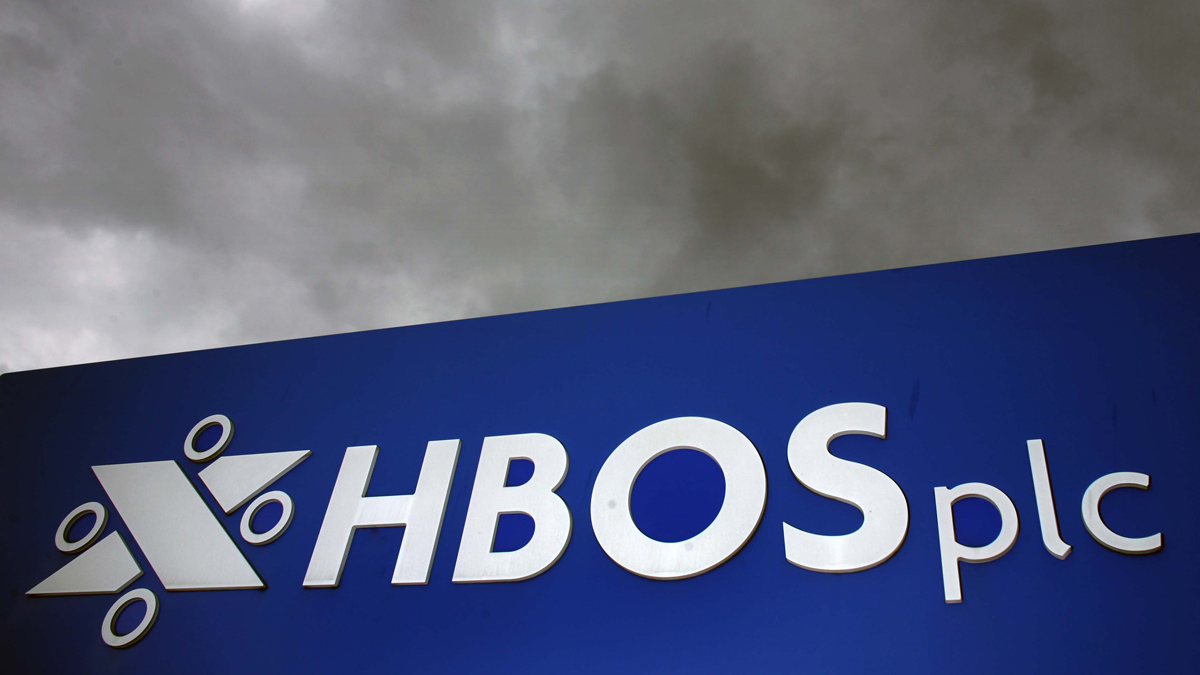 Lloyds shareholders in £350m claim win disclosure battle
Lloyds shareholders in £350m claim win disclosure battleIn Depth Judge rejects bank's argument that advice ahead of ill-fated takeover of Hbos is privileged